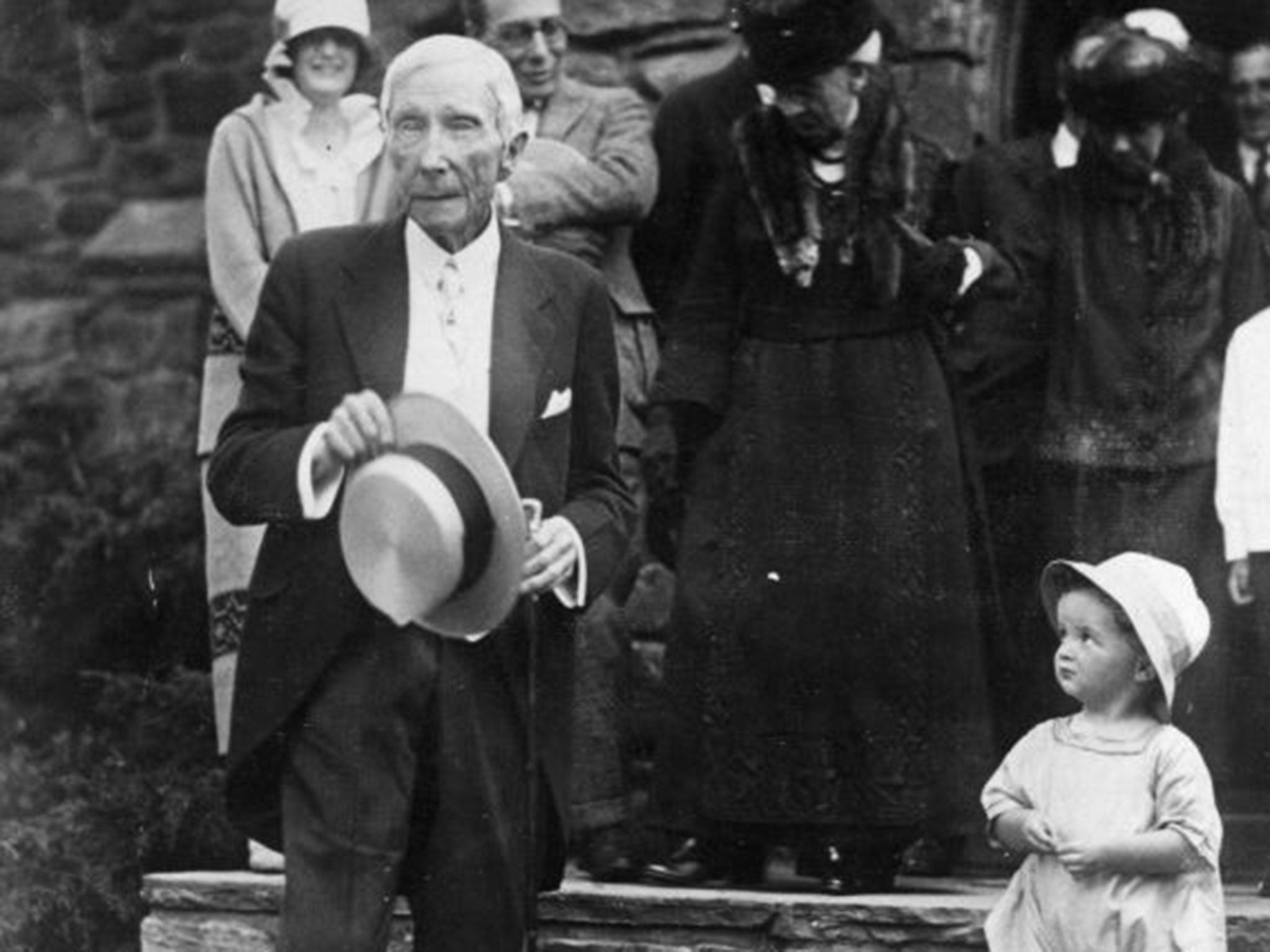Rockefellers go green: Rockefeller foundation divests funds in fossil fuel industries
American oil dynasty to pull all investment in fossil fuel industries on eve of global climate change summit, placing it as an unlikely champion of the push towards alternative energy sources

The American family that for decades has been synonymous not just with great riches but with riches created by oil said on Monday that it was moving to divest itself entirely from all oil and fossil fuel interests.
Descendants of John D Rockefeller, who tapped the black gushers of Texas and California more than a century ago to forge Standard Oil, a company that was later to spawn such names as Exxon, Chevron, Amoco and Mobil, announced the decision on the eve of the climate change summit in New York.
It means that his heirs’ giant philanthropic foundation, the Rockefeller Brothers Fund which holds investments totalling almost $900m (£550m), will join a growing movement that began on university campuses just a few years ago to liquidate all stakes in companies that can be tied to global warning.
And it will propel what was once America’s royal family of oil to the front ranks of the fight against climate change and the push for alternative energy sources such as wind, tidal and solar. “There is a moral imperative to preserve a healthy planet,” said Valerie Rockefeller Wayne, a great-great-granddaughter of the oil magnate and a foundation trustee.
Some 180 institutions in the US have already taken up the cause, including pension funds, foundations, local governments and religious bodies, who liken it to the campaign in the 1980s to divest dollars from multinationals working in South Africa during apartheid. Also involved are hundreds of wealthy individuals who see something objectionable in supporting fossil fuels.
The Rockefeller clan were among about 50 additional bodies announcing their intention to sign up to the movement yesterday in a concerted push aimed at sending a message to world leaders attending the climate change summit this morning, including President Barack Obama and David Cameron. Some individuals also stepped forward, including the Hollywood actor Mark Ruffalo.
In addition to spurning the fossil fuels industry, many of the institutions involved are betting on the future of renewable energy sources by redirecting funds to companies embracing and developing them.
The decision of the Brothers Fund, which was created by relatives of John D Rockefeller in 1940, might seem like a betrayal of his legacy and the fortune he left behind. But the fund’s chief administrator, Stephen Heintz, believes he would support it.
“We are quite convinced that if he were alive today, as an astute businessman looking out to the future, he would be moving out of fossil fuels and investing in clean, renewable energy,” he said in a statement.
The fund has already eliminated all of its positions in companies associated with coal and the Canadian tar sands. Completing the other divestments will take time, Mr Heintz insisted.
“There is something ironic about having all this wealth that was created in the oil industry now being used to move to a different energy future,” Mr Heintz conceded. “The action we’re taking is symbolism, but it is important symbolism. We’re making a moral case, but also, increasingly, an economic case.”
For now, giants like Exxon are hardly being pinched by the campaign. There will always be other investors interested in getting a share of its profits. But the clear hope is that as the divestment movement grows, the debate about fossil fuels versus renewable energy sources will pick up. It is doubtful than any single institution would send a more powerful message on the subject than the Rockefeller family.
“This is a threshold moment,” Ellen Dorsey, executive director of the Wallace Global Fund, which has co-ordinated the effort to recruit foundations to the cause, told The New York Times. “This movement has gone from a small activist band quickly into the mainstream.”
According to Arabella Advisors, which specialises in management of philanthropic funds, those institutions already committed to the movement have together divested about $50bn from the fossil fuel sector while individual investors have taken out about $1bn.
In New York for the People’s Climate March last Sunday, attended by about 300,000 people, Mr Ruffalo said the moment to push for action had come. “We are here to say there are other ways to move forward without burning fossil fuels,” he said. “When politicians don’t answer this will of the people, we will remove them or go around them. That is the message today.”
While the movement started on college campuses, the response of America’s wealthiest Ivy League universities has not been consistent. Harvard had firmly declined to involve its endowment in any divestment drive, while Stanford has divested from companies tied to coal. Yale has said it is considering divestment options.
Join our commenting forum
Join thought-provoking conversations, follow other Independent readers and see their replies
Comments
Bookmark popover
Removed from bookmarks